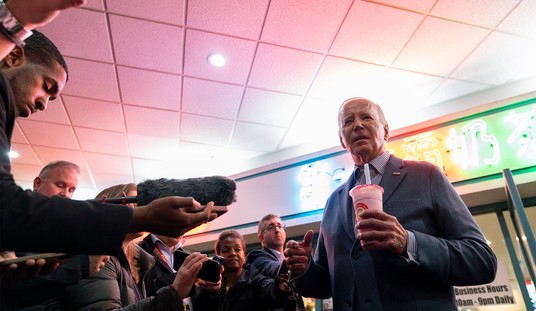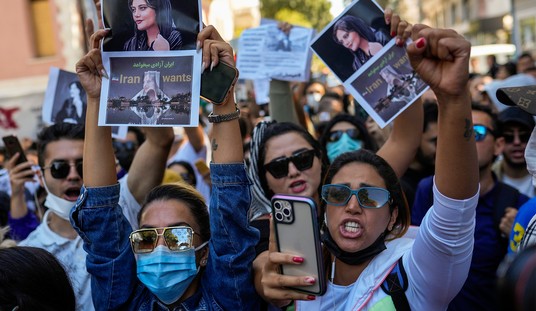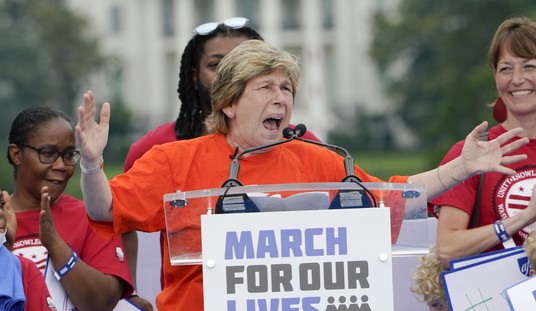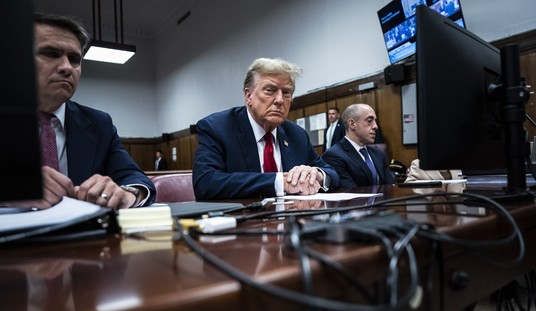John McCain is a menace to American national security and should not be entrusted with the supervision of small animals, let alone be considered the elder GOP statesman on foreign policy.
There, I said it.
Over the past two years, McCain has taken virtually every position with respect to the Egyptian Muslim Brotherhood and repeatedly proved to be catastrophically wrong.
Rewind to the early days of the so-called “Arab Spring”. In February 2011, as Obama’s Director of National Intelligence James Clapper was telling Congress that the Muslim Brotherhood was a “largely secular organization” and Obama himself went on national TV and said that the Muslim Brotherhood didn’t have a majority support in Egypt, McCain gave an interview on the topic with the German daily, Der Speigel.
As the fires of revolution were burning in Egypt and long-time dictator Hosni Mubarak was in his last days in office, McCain rightly warned that the Muslim Brotherhood should play no role in any transitional government:
SPIEGEL: What is your assessment of the Muslim Brotherhood?
McCain: I think they are a radical group that first of all supports Sharia law; that in itself is anti-democratic — at least as far as women are concerned. They have been involved with other terrorist organizations and I believe that they should be specifically excluded from any transition government.
SPIEGEL: Are you afraid that someone like Mohamed ElBaradei is instrumentalized by the Muslim Brotherhood?
McCain: Oh yeah, I think it’s very clear that the scenario is very likely he could be their front man. He has no following nor political influence in Egypt. After all, he has lived outside of Egypt for most of his life.
SPIEGEL: A certain role of the Muslim Brotherhood in the transition process in Egypt seems acceptable to the Obama White House. Does that concern you?
McCain: It concerns me so much that I am unalterably opposed to it. I think it would be a mistake of historic proportions.
So far, so good. And yet McCain said he was “unalterably opposed” to the Muslim Brotherhood playing any transitional role in Egypt.
And yet a year later McCain and his pal Lindsey Graham were in Cairo following the arrest of more than a dozen US NGO workers, including the son of Transportation Secretary Ray LaHood, appealing for the release of the Americans.
Prior to the trip, in an interview he gave to Fox News McCain began to modify his stance and pushed back on Hannity’s criticism of the group:
In the case of Egypt, the Muslim Brotherhood is split. They have not obtained power yet. There are groups of them that want to have good relations with us. They may be an Islamic country, Israel is a Jewish state. So let’s wait and see.
See, the Muslim Brotherhood is just like Israel! And they’re split!
The report that McCain and Graham gave to the US media after their meeting with the Muslim Brotherhood was that the group could be dealt with, as expressed by Graham to the Wall Street Journal:
“After talking with the Muslim Brotherhood, I was struck with their commitment to change the law because they believe it’s unfair,” said Sen. Lindsey Graham (R., S.C.), who was traveling with Mr. McCain. Mr. Graham and other lawmakers praised the Brotherhood, whose Freedom and Justice Party won a plurality of nearly 50% of the seats in Parliament, as a strong potential partner for the future of U.S. relations with Egypt.
That marks a dramatic change from several months ago, when some Republican politicians reacted warily to the Brotherhood’s rising clout. In April 2011, Mr. Graham said he was suspicious of the Brotherhood’s “agenda,” and that “their motives are very much in question.”
“I was very apprehensive when I heard the election results,” Mr. Graham said on Monday. “But after visiting and talking with the Muslim Brotherhood I am hopeful that…we can have a relationship with Egypt where the Muslim Brotherhood is a strong political voice.”
In a statement McCain gave during that same Cairo trip he acknowledged meeting with members of the Muslim Brotherhood and expressed the support of the US for all parties involved in the new parliament:
Instead, we traveled here to meet with newly elected members of the Parliament from across the political spectrum, with members of the Muslim Brotherhood, and with the Supreme Council of the Armed Forces – and to participate in a conference with Egyptian and American businesses that seek to increase prosperity and development in both of our peoples. With all of these different groups, we have reaffirmed the support of the United States, and the Congress in particular, for the sovereignty and aspirations of the Egyptian people – and conveyed our strong desire to cooperate, as partners and friends, with the new democratic government.
But no sooner had McCain and Graham left Egypt than the Muslim Brotherhood rejected McCain’s comments that they played a “constructive role” in ending the stand-off over the NGO workers:
Senior members of Egypt’s Muslim Brotherhood have reacted angrily to statements by US Senator John McCain in which he thanked the group for its role in lifting the travel ban on indicted foreign NGO workers…
Freedom and Justice Party (FJP)MP Farid Ismail on Friday insisted that neither the Brotherhood nor its political arm the FJP helped lift the travel ban…
McCain said, “Last week in Cairo, we had meetings with the speaker of parliament and other newly elected parliamentarians from across the political spectrum, with leaders of the Muslim Brotherhood, and with Field Marshal Tantawi and other members of the Supreme Council of the Armed Forces. These meetings reassured us that people of goodwill in both countries were working diligently to find a positive resolution to the recent crisis.
“We are encouraged by the constructive role played over the past week by the Muslim Brotherhood and its political party, the Freedom and Justice Party. Their statement of February 20 was important in helping to resolve the recent crisis.”
Two months later comments McCain made during that trip would come back to haunt him, as it was reported that McCain had approved the presidential candidacy of Muslim Brotherhood senior leader Khairat al-Shater. The Egyptian daily Shorouck reported:
Muslim Brotherhood sources told ‘Shorouck’ that deputy leader of the Muslim Brotherhood, Khairat Al-Shater, discussed the decision of his candidacy for the presidency with U.S. Senator John McCain two months ago, and that the latter had assured him no objection of the Brotherhood becoming president. (Google translation)
What makes McCain’s approval of Shater’s candidacy is that it broke a pledge the Muslim Brotherhood made that they would not run a candidate for president. And just a few days after McCain’s endorsement of Shater was made public, so too was video of a speech Shater had given where he had promised that under a Muslim Brotherhood-led government, “every aspect of life is to be Islamicized”.
Whether knowingly or unknowingly, McCain had backed the most hardline elements of the Muslim Brotherhood.
So McCain had twice been played the fool for the Muslim Brotherhood.
But rather than take a pause and considering how he had been played, McCain waded right back into the thick of it again, lashing out at Rep. Michelle Bachmann on the floor of the Senate for daring to raise questions about the influence of Muslim Brotherhood in the Obama administration, particularly Hillary Clinton aide Huma Abedin, who Arab media sources, including Al-Jazeera, had reported several years prior the membership of several of her family members, including her brother and mother, in the Muslim Brotherhood.
In retrospect, Bachmann’s concerns about the Muslim Brotherhood seem prescient.
Then in September, McCain was again attacking fellow Republicans for introducing a resolution to end aid to Egypt and Libya after the 9/11 attack on the Cairo embassy and the terror attack in Benghazi that killed four Americans, saying that “cutting aid would be foolish”.
So what’s McCain’s position today after Egyptian president (and Muslim Brotherhood leader) Mohammed Morsi’s seizure of dictator’s powers last week? McCain said on Sunday that the U.S. should consider withholding aid from Egypt — the very position he declared “foolish” and attacked fellow Republicans for just a few weeks ago.
What the most charitable reading of John McCain’s record on the Muslim Brotherhood would show is that he suffers from severe senility marked by rare occasions of lucidity. In the US Senate, that’s certainly nothing new. But why should anyone in the Republican Party or the American public put any trust in what John McCain has to say about anything?
With John McCain showing at least three different faces on the Muslim Brotherhood, who only knows which face we will see next. Regardless, we can fairly expect he’ll be wrong.








Join the conversation as a VIP Member